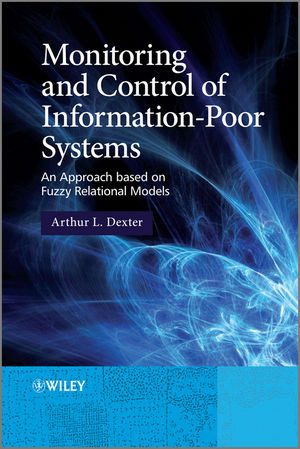

Most ebook files are in PDF format, so you can easily read them using various software such as Foxit Reader or directly on the Google Chrome browser.
Some ebook files are released by publishers in other formats such as .awz, .mobi, .epub, .fb2, etc. You may need to install specific software to read these formats on mobile/PC, such as Calibre.
Please read the tutorial at this link: https://ebookbell.com/faq
We offer FREE conversion to the popular formats you request; however, this may take some time. Therefore, right after payment, please email us, and we will try to provide the service as quickly as possible.
For some exceptional file formats or broken links (if any), please refrain from opening any disputes. Instead, email us first, and we will try to assist within a maximum of 6 hours.
EbookBell Team

5.0
98 reviewsThe first part of Monitoring and Control of Information-Poor Systems aims to clarify why design decisions must take account of the uncertainty associated with optimal choices, and to explain how a fuzzy relational model can be used to generate a fuzzy output, which reflects the uncertainties associated with its predictions. Part two gives a brief introduction to fuzzy decision-making and shows how it can be used to design a predictive control scheme that is suitable for controlling information-poor systems using inaccurate measurements. Part three describes different ways in which fuzzy relational models can be generated online and explains the practical issues associated with their identification and application. The final part of the book provides examples of the use of the previously described techniques in real applications.
Key features:
Monitoring and Control of Information-Poor Systems forms an invaluable resource for a wide range of graduate students, and is also a comprehensive reference for researchers and practitioners working on problems involving mathematical modelling and control.Content:
Chapter 1 Characteristics of Information?Poor Systems (pages 1–11):
Chapter 2 Describing and Propagating Uncertainty (pages 13–28):
Chapter 3 Accounting for Measurement Uncertainty (pages 29–40):
Chapter 4 Accounting for Modelling Errors in Fuzzy Models (pages 41–61):
Chapter 5 Fuzzy Relational Models (pages 63–93):
Chapter 6 Fuzzy Decision?Making (pages 95–109):
Chapter 7 Predictive Control in Uncertain Systems (pages 111–128):
Chapter 8 Incorporating Fuzzy Inputs (pages 129–152):
Chapter 9 Disturbance Rejection in Information?Poor Systems (pages 153–167):
Chapter 10 Online Model Identification in Information?Poor Environments (pages 169–186):
Chapter 11 Adaptive Model?Based Control of Information?Poor Systems (pages 187–210):
Chapter 12 Adaptive Model?Free Control of Information?Poor Systems (pages 211–227):
Chapter 13 Fault Diagnosis in Information?Poor Systems (pages 229–244):
Chapter 14 Control of Thermal Comfort (pages 245–260):
Chapter 15 Identification of Faults in Air?Conditioning Systems (pages 261–273):
Chapter 16 Control of Heat Exchangers (pages 275–291):
Chapter 17 Measurement of Spatially Distributed Quantities (pages 293–307):